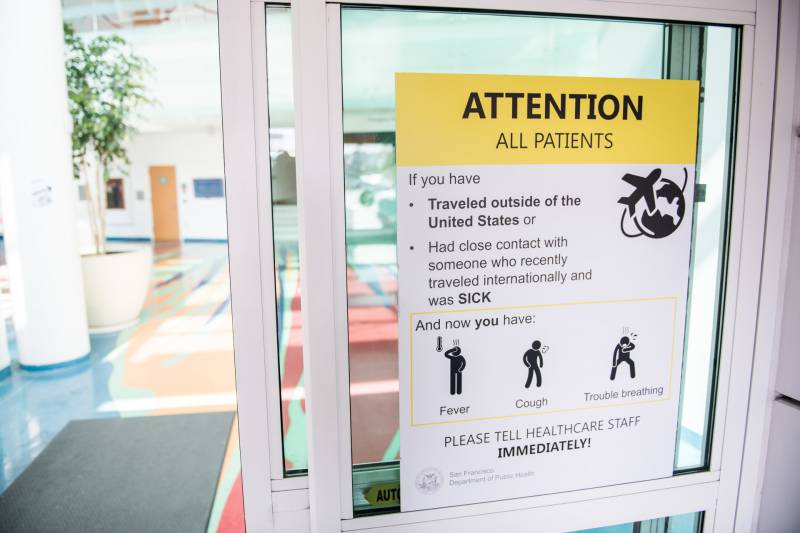Updated, March 18, 2020
Most people who contract COVID-19 experience cold-like symptoms like shortness of breath, sore throat, cough and fever. A small percentage of people may also get a runny nose and feel sick to their stomach.
If you believe you were exposed to COVID-19 and develop flu-like symptoms or have difficulty breathing, call your doctor or emergency department for medical advice, according to the Centers for Disease Control and Prevention.
A typical bout of COVID-19 ranges from a few days to a few weeks. If you’re exposed to the bug you might not feel sick for up to 14 days.
The tricky part is that this year’s flu causes very similar symptoms.
“It’s going to be very difficult to distinguish those two infections without any type of actual testing,” said Dr. Jeffrey Klausner, adjunct professor of epidemiology at the UCLA Fielding School of Public Health, on KQED “Forum.”
If you start coming down with something, the CDC recommends you stay home except to get medical care. Stay in touch with your doctor. Avoid public transportation. If you live in the San Francisco Bay Area, shelter-in-place orders already prohibit most residents from leaving their homes except to perform essential tasks like getting food and supplies.
“About 20% of people [with COVID-19] have more severe symptoms … they will have a fever and cough, maybe some early signs of pneumonia, which can be discomfort in the chest and some difficulty breathing,” said Klausner. “Those are the people that certainly should seek medical attention.”
The first step is to call your primary care provider.
“They will provide you with further instructions on how to move forward with your visit to the clinic or hospital accordingly,” said Veronica Vien, public information officer for the San Francisco Department of Public Health.
The number of people who have the novel coronavirus and need intensive treatment is growing.
“We’ve also seen, unfortunately, a few percent have very severe pneumonia, and those people definitely will need hospitalization and sometimes ventilatory support,” said Klausner. “The good news is that more than 98 percent of people do have a successful recovery, and there’s no evidence that they have any serious chronic complications once they’ve recovered.”
Remember. Don’t panic. Most people will not need medical attention. However, if you’re over 65 or you have an underlying medical condition, reach out to a doctor immediately if you have any trouble breathing. For everyone else, lay low and stay home. Your illness will likely resolve.
The best way to protect yourself from COVID-19 is to wash your hands thoroughly with soap and water frequently throughout the day. Public health experts do not currently recommend wearing a mask. According to the CDC, you should also clean frequently touched surfaces and objects like those tables, countertops, light switches, doorknobs and handles using regular household detergent and water. More from the CDC here.

